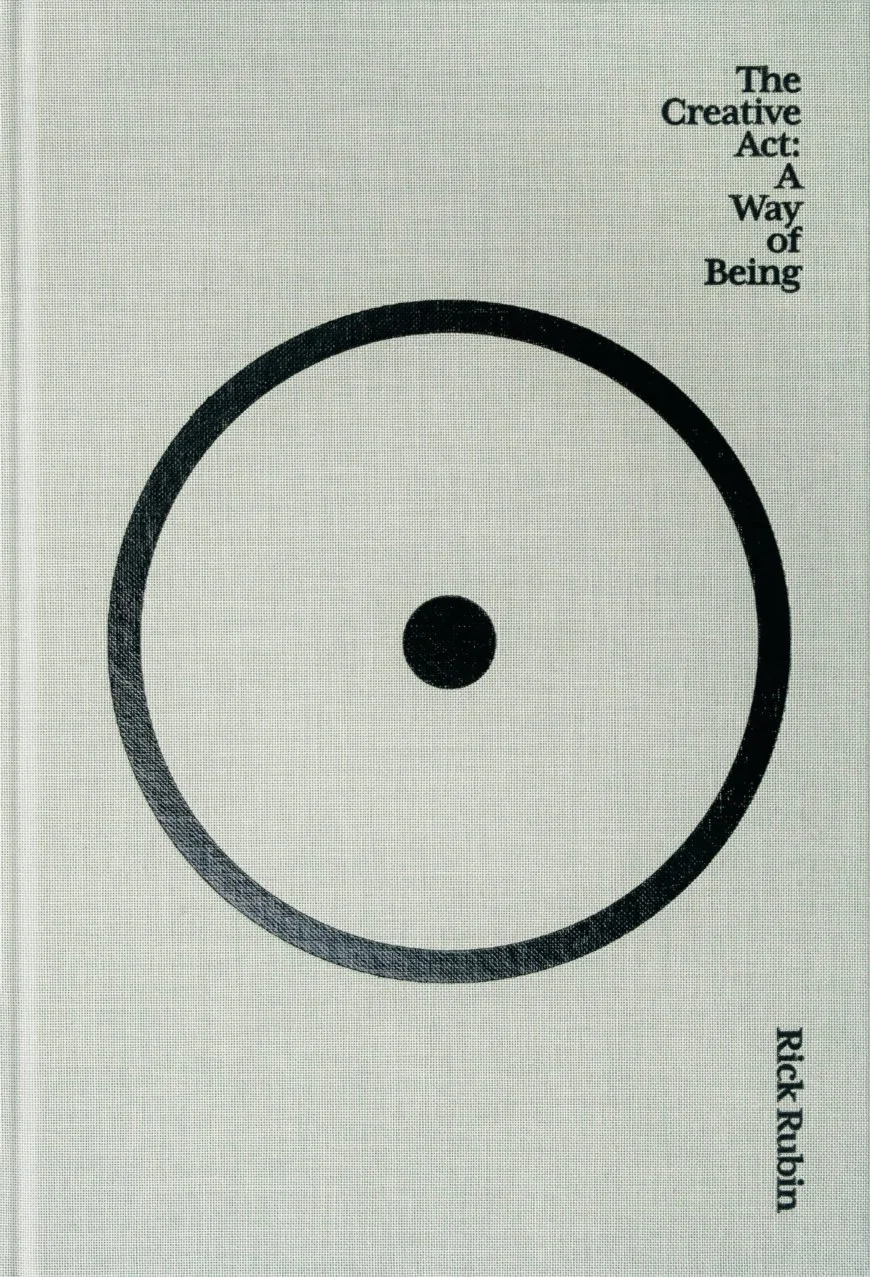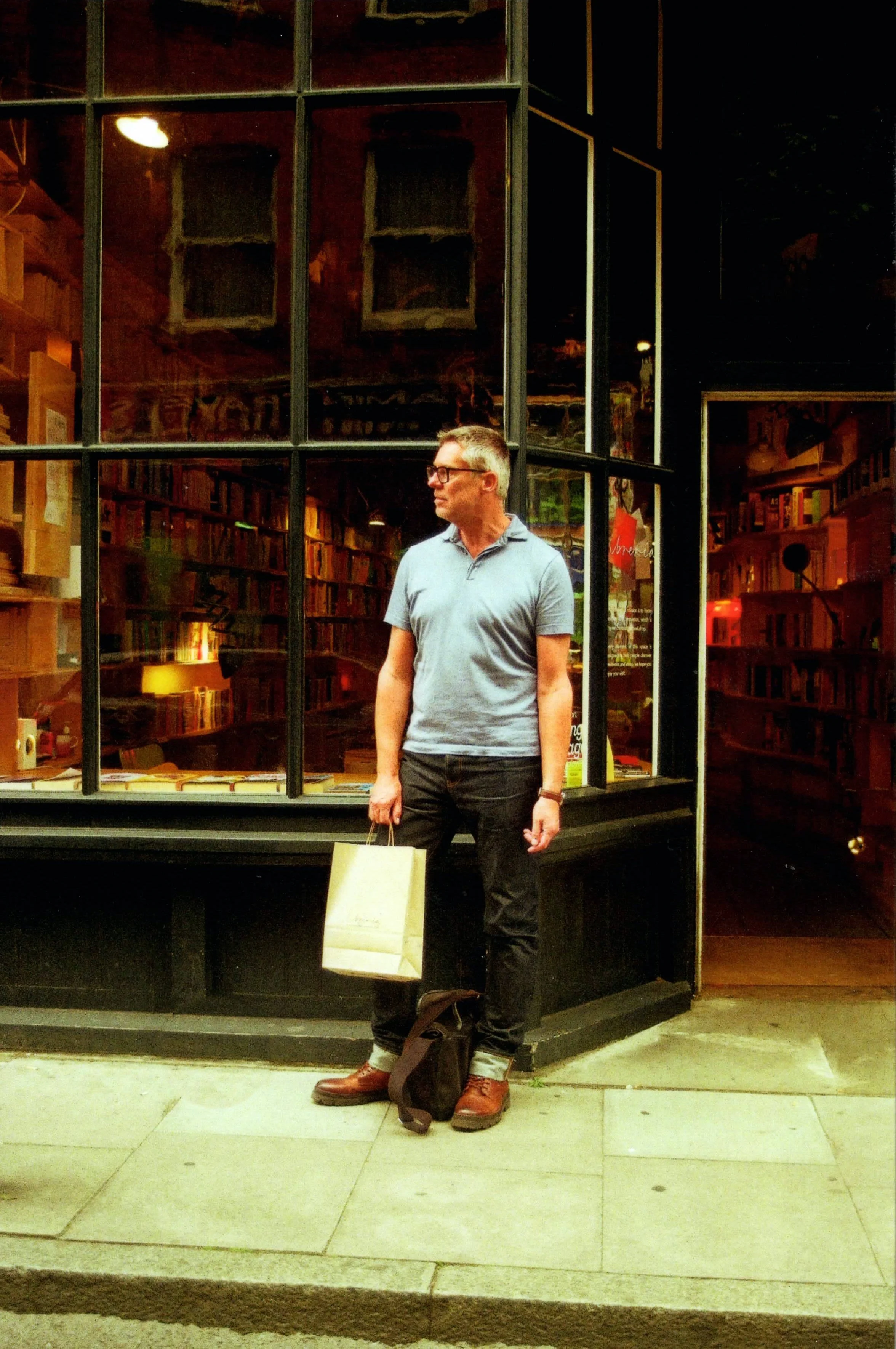The Creative Act:
A Way of Being by Rick Rubin
There’s a buzz in the circles I drift around in about this book. It’s a series of brief essays on the creative process bound in a minimally designed cover that asks to be held.
The writing by music reducer, Rick Rubin, is gentle and wise. It encourages you to slow down, ponder and take notes.
You don’t need to be a musician to appreciate this book, he writes about all creative acts:
The ability to look deeply
is the root of creativity.
To see past the ordinary and mundane
and get to what might otherwise be invisible.
A number of prevailing themes struck me. I’ve read similar ideas in other books and blogs. But he collates and expresses them in a new way. Which is being creative.
Awareness. Be a witness to the world around you. “There is never a shortage of awe and inspiration to be found outdoors. If we dedicated our lives solely to noticing changes in natural light and shadow as the hours pass, we would constantly discover something new.”
Experiment. Everything we create is a work in progress. Some succeed, some fail. But whatever happens you will learn something which you may use on another project.
Collaboration. Everything we do is a collaboration in some form. You are influenced by what has been before and you will influence those who come after. Your own experiences, the tools you use and the people you meet all provide a source of ideas.
Care. There may be easier and quicker options for you to achieve something but if you have to think, really think about the process, your work will be closer to your vision. This is one of the reasons I prefer using manual settings on my camera. It gives me control to make the photo I see.
Don’t be average. It’s nothing to aspire to…
Listen. “While the eyes and the mouth can be sealed, an ear has no lid, nothing to close. It takes in what surrounds it. It receives but can't transmit.”
Awe. If you are familiar with something, you notice less. It’s why we like visiting new places. For those who live there it’s mundane, but on our first sighting we can be awed. Try to look beyond the the things you see everyday and notice something new. If only it is the light change. Which it does every single moment of the day.
Taking a wrong turn
allows you to see landscapes
you wouldn't otherwise have seen.
Excellence. You should always make the finest work you are capable of. Care about the details. Earnings and productivity takes second place when you create. They may follow… or they may not.
Express yourself. Creating is not about perfection. It’s about the gut. It's sharing who you are and how you see the world. If your work speaks to your audience, it allows them to express themselves. You are opening “a conversation rather than closing it.”
Share. If you don’t release your creativity to the world you won’t make space for your next chapter. For that is what your work is. A series of chapters. Some may be better than others, but you need to free yourself to move on.
Continue learning. “I'm both a professor and student, because if you're no longer a student, you don't have the right to call yourself a professor.” (Arn Anderson)
Without diligence,
inspiration alone rarely yields work
of much consequence.
Photo by Ian Sanders outside Libreria, a bookshop by Second Home.
The book takes on extra resonance because I bought it from the wonderfully eclectic bookshop, Libreria, while bimbling around Brick Lane with Ian Sanders on this recent Inspiration Jaunt.
You are you.
The work is the work.
Each person in the audience is themselves. Uniquely so.
None of it can truly be understood, let alone distilled to simple equations or common language.
Billions of data points are available at any given moment and we collect only a small number. With this glimpse through a keyhole, we assemble an interpretation and add another story to our collection.
Notes:
Brian Eno and Peter Schmidt’s Oblique Strategies offer quirky prompts to help you create.
Ian Sanders shares his 10 favourite tips on The Creative Act.
Other books which tread a similar path and I highly recommend include ‘On Connection’ by Kae Tempest, ‘Creativity: A Short and Cheerful Guide’ by John Cleese and anything by Dave Trott.
‘The Creative Act’ is best read in print and bought from an independent bookstore.

